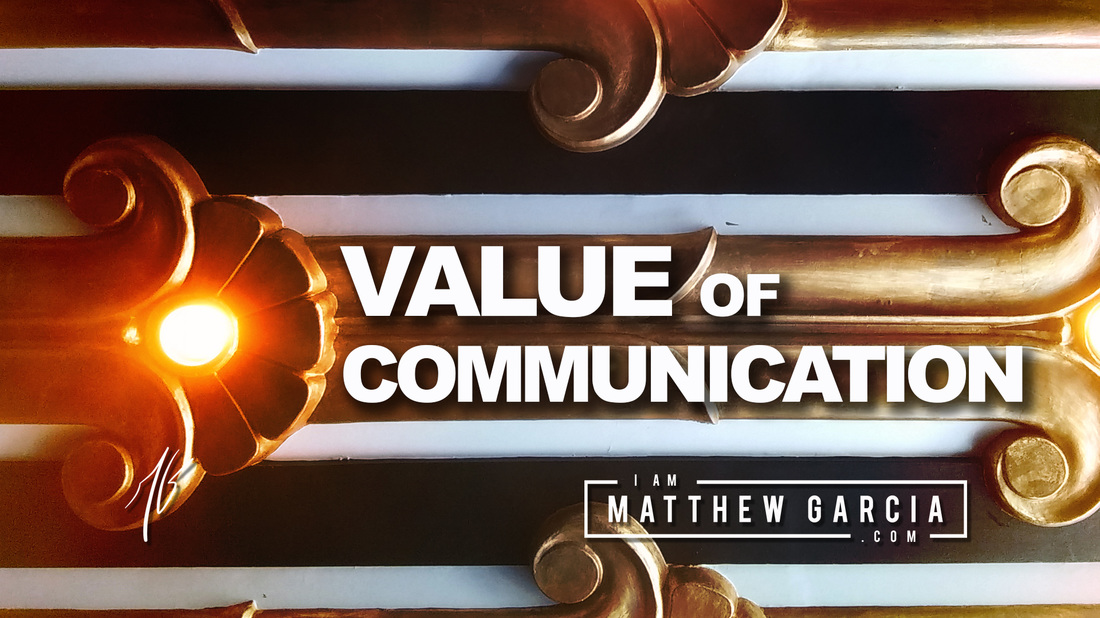|
Com·mu·ni·ca·tion
The imparting or exchanging of information or news (Dictionary.com) Ex·change An act of giving one thing and receiving another (esp. of the same type or value) in return (Dictionary.com) Val·ue The regard that something is held to deserve; the importance or preciousness of something (Dictionary.com) I am a big advocate for communication, effective communication at that. I do not believe that everything has to be long and drawn out, especially if the communication is effective. What I have noticed recently is less and less people know how to practice effective communication. This is not a dummy down post with the intention to belittle people. It is a post on dealing with fundamentals so that people can improve in their communication efforts to make a greater impact. I want to try and help many people eliminate misunderstandings. To communicate effectively, it takes two or more people willingly participating in an exchange. There is a giver or sender of information and a receiver. These roles will switch back and forth in any conversation. In order to receive, one must give. Let’s start by thinking in terms of value. If someone is making an effort to communicate something, they see value in what they are trying to share and value in the person they are sharing their information with. This does not mean the receiver has to agree with everything the sender is saying, but should make an effort to acknowledge why the sender is saying whatever it is they are saying. I try and tell people when they are in the role of the sender, it is their responsibility that beyond any emotion, the receiver understands the heart of the message the sender is trying to send. I often times ask the receiver, “Do you understand what I mean?” or “Does that make sense?” I do not do this because I do not think the other person is not smart enough to understand. It is more for my reassurance that I was effective in how I communicated my point. As the receiver, it is okay to take a pause or a beat as new information is transmitted and you are trying to take it in. As the sender, you cannot be so demanding of the receiver to always have an immediate response. This is an intimidation strategy and hinders honest communication. You must practice patience. Simply because you may have had time to spend with the information you are communicating, but this might all be brand new to the receiver. As the receiver of information, it is my responsibility to seek out the heart of what the sender is trying to say and I must be clear if I am not understanding or I am unsure. I do not have to agree with everything the sender is saying, but I am responsible for understanding what they are saying. Some people think because they do not agree with someone, this justifies their ability to opt out of understanding. Assuming this person is wrong because you initially disagree can cause a lack of trust and shut down the entire conversation. Both parties need to make sure and do their part to always walk into a conversation being willing to learn first. The person who wants to dominate the conversation or only wants to share their side of a situation proves to be the lesser mature person of the group and is often the cause for poor communication. Take responsibility for your role and make sure you do all you can to send and receive as best as you can before you allow your emotions to get the better of you. Effective communication is valuable, but do not fail to see that what is being communicated and who is involved with the interaction, together, are the true value of communication. Talk soon & God bless, MG
0 Comments
Leave a Reply. |
Welcome To The Process.
EBOOK NOW FREE!!! Click image for more info. blog homeall blogspersonal
|




 RSS Feed
RSS Feed
